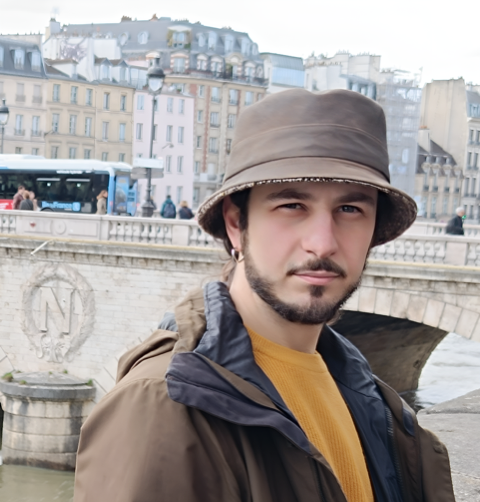Ahmedeo Shokry

PhD Student
Resarch activities at CPHT: Condensed Matter
Research interests: Machine Learning, Condensed Matter Physics, Computational Physics, Variational Monte Carlo, Strong Correlated Matter
Thesis: "Neural Dynamics for Quantum Matter"
Advisor: Filippo Vicentini
Abstract
Neural-network encodings of homogeneous quantum systems where the whole system is treated with equal precision have been extensively studied in recent years. This approach has also been used in a scientific investigations of impurity problems, but the calculations were overly expensive because the full wave-function of the system and discretised bath was reconstructed. For this project, we will be exploiting the structure of the problem, representing the environment at a more coarse-grained level. We will develop new variational ansatze, potentially inspired by Artificial Neural Networks, that can represent those configurations efficiently. In practice, we will first use physical intuition to devise new parametrised functions that can efficiently capture the quantum state, we will then attempt to derive analytical proofs about the expressivity of those ansatze as well as numerical data by testing them on prototypical problems.
While at the beginning we might discretise the environment and treat it as finite, the goal will be to work with an infinite environment, possibly leveraging recursion schemes of autoregressive functions in order to compute quantities in a ”thermodynamical limit”. This will, in turn, require algorithmical developments beyond the variational ansatz: during this doctorate, we will be investigating how to combine ideas from Machine Learning with other approaches such as, but not limited to, Quantum Monte Carlo techniques.
The initial goal will be to use the developments mentioned above to compute ground-state properties, but eventually the student will investigate dynamical properties by leveraging, for example, the Time-Dependent Variational Principle or by developing new approaches. As this investigation will be complex in itself, at the beginning the student will focus on the simpler problem of bosonic systems, and the additional complexity of dealing with the anti-symmetry arising from the fermionic commutation relations will be postponed to a more advanced stage of the doctorate. Towards the end of the Ph.D. thesis the student will collaborate with other researchers in order to integrate the techniques he developed with Dynamical Mean Field Theory approaches in order to compute properties of strongly-correlated electronic systems.
Finally, along the course of his doctorate the student will develop and document open source implementations of the algorithms he developed in order to share them with the larger community.
| Address | CPHT, Ecole Polytechnique, 91128 Palaiseau cedex, France |
| Phone number |
|
| firstname.lastname@polytechnique.edu | |
| Office | 412:10-19 |
